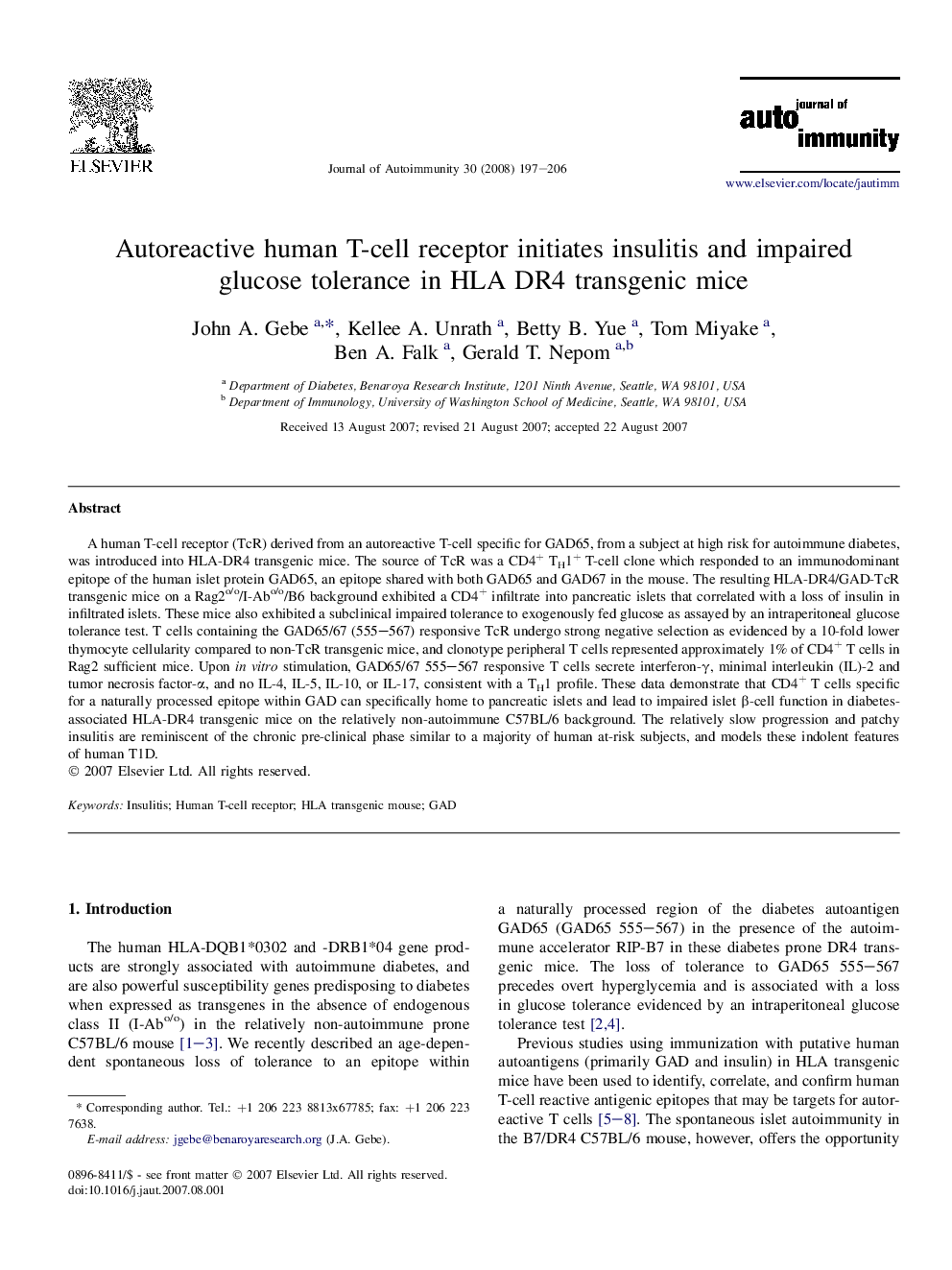| Article ID | Journal | Published Year | Pages | File Type |
|---|---|---|---|---|
| 3368339 | Journal of Autoimmunity | 2008 | 10 Pages |
A human T-cell receptor (TcR) derived from an autoreactive T-cell specific for GAD65, from a subject at high risk for autoimmune diabetes, was introduced into HLA-DR4 transgenic mice. The source of TcR was a CD4+ TH1+ T-cell clone which responded to an immunodominant epitope of the human islet protein GAD65, an epitope shared with both GAD65 and GAD67 in the mouse. The resulting HLA-DR4/GAD-TcR transgenic mice on a Rag2o/o/I-Abo/o/B6 background exhibited a CD4+ infiltrate into pancreatic islets that correlated with a loss of insulin in infiltrated islets. These mice also exhibited a subclinical impaired tolerance to exogenously fed glucose as assayed by an intraperitoneal glucose tolerance test. T cells containing the GAD65/67 (555–567) responsive TcR undergo strong negative selection as evidenced by a 10-fold lower thymocyte cellularity compared to non-TcR transgenic mice, and clonotype peripheral T cells represented approximately 1% of CD4+ T cells in Rag2 sufficient mice. Upon in vitro stimulation, GAD65/67 555–567 responsive T cells secrete interferon-γ, minimal interleukin (IL)-2 and tumor necrosis factor-α, and no IL-4, IL-5, IL-10, or IL-17, consistent with a TH1 profile. These data demonstrate that CD4+ T cells specific for a naturally processed epitope within GAD can specifically home to pancreatic islets and lead to impaired islet β-cell function in diabetes-associated HLA-DR4 transgenic mice on the relatively non-autoimmune C57BL/6 background. The relatively slow progression and patchy insulitis are reminiscent of the chronic pre-clinical phase similar to a majority of human at-risk subjects, and models these indolent features of human T1D.
